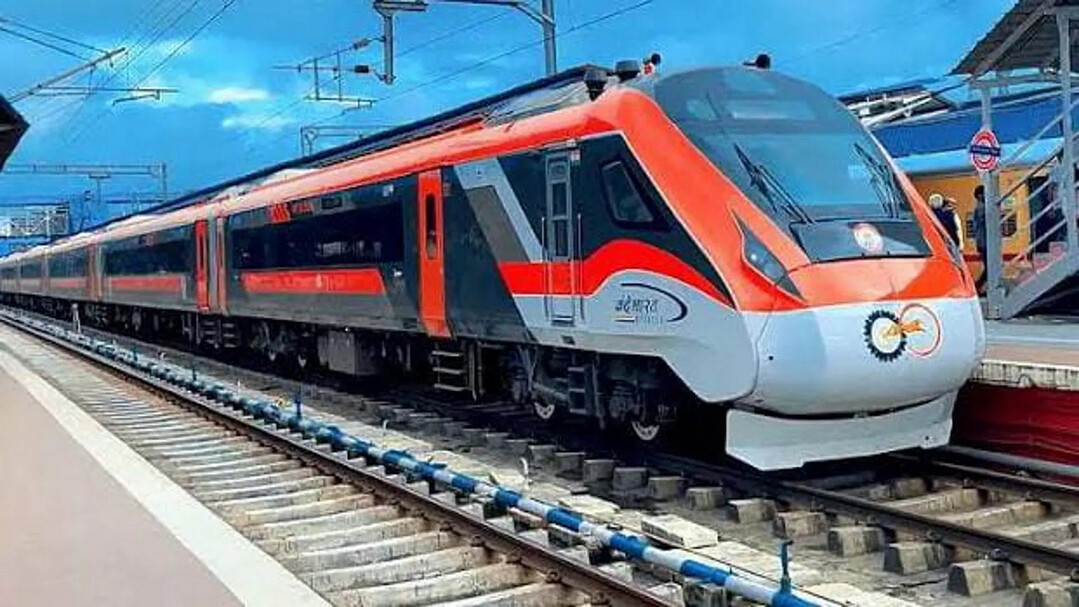
Paraguayan President Santiago Peña expressed strong interest in importing India's proud Vande Bharat trains during his visit to India, opening a new chapter for railway cooperation between South America and India. This visit, the first state visit by a Paraguayan president to India, demonstrates a strong commitment to strengthening relations between the two countries.
On Tuesday (local time) in New Delhi, President Peña met with Indian Railways Minister Ashwini Vaishnaw to discuss potential cooperation in the railway sector. During the meeting, Paraguay officially requested India's participation in the "Central Bi-oceanic Railway Corridor Project," which aims to connect the Atlantic and Pacific oceans. This project is a crucial infrastructure initiative expected to revolutionize logistics in South America, with India's advanced railway technology anticipated to play a significant role.
The Vande Bharat Express, first launched in 2019 as part of the Indian government's 'Make in India' initiative, is a semi-high-speed train indigenously manufactured at the Integral Coach Factory (ICF) in Chennai. Boasting a top speed of 160 km/h and featuring various seating classes, it has become a flagship model symbolizing India's railway modernization. India is currently preparing to introduce tilting train technology and plans to apply this technology to approximately 100 of the 400 Vande Bharat trains to be produced by 2025. To this end, a 59km long test track capable of testing trains up to 220 km/h is being constructed in the Jodhpur region, which will also be used for testing trains destined for export.
Following his visit to New Delhi, President Peña traveled to Mumbai to meet with Indian industry leaders and discuss potential investments. He showed particular interest in attracting investments in the home textile, chemical, and pulp and paper sectors, holding discussions with prominent business figures such as Trident Group Chairman Rajinder Gupta.
During his summit with Indian Prime Minister Narendra Modi on Monday, President Peña strongly condemned the April 22 terror attack in Pahalgam and expressed his commitment to a joint front with India in combating terrorism. Prime Minister Modi also emphasized that both countries would stand united in the fight against terrorism. Furthermore, both leaders explored new cooperation opportunities in various fields, including digital technology, critical minerals, energy, agriculture, health, defense, railways, space, and overall economic partnership.
Prime Minister Modi suggested that the two countries could work together to expand the Preferential Trade Agreement (PTA) with MERCOSUR, the South American trade bloc. India's PTA with MERCOSUR has been in effect since 2009, and both sides have continued negotiations to upgrade it to a Comprehensive Economic Partnership Agreement (CEPA) since 2018.
At a dinner hosted by Indian President Droupadi Murmu, President Murmu noted that as part of the Global South, India faces similar development challenges as Paraguay. India is actively utilizing technology for sustainable development, equitable access to technology, and bridging the digital divide, expressing its willingness to share its experience in building digital public infrastructure with Paraguay. The two countries have already signed a Memorandum of Understanding (MOU) in the dairy and agriculture sectors.
The summit discussed strengthening cooperation in diverse areas, including agriculture, pharmaceuticals, technology, renewable energy, health, critical minerals, railways, and people-to-people exchanges. An agreement was also reached to establish a Joint Commission Mechanism (JCM) between the two countries. As of the 2022-23 fiscal year, bilateral trade between India and Paraguay amounted to 477 million USD, with Indian exports accounting for 317 million USD. Both countries are expected to further solidify their economic and strategic partnership through this meeting.
[Copyright (c) Global Economic Times. All Rights Reserved.]






























